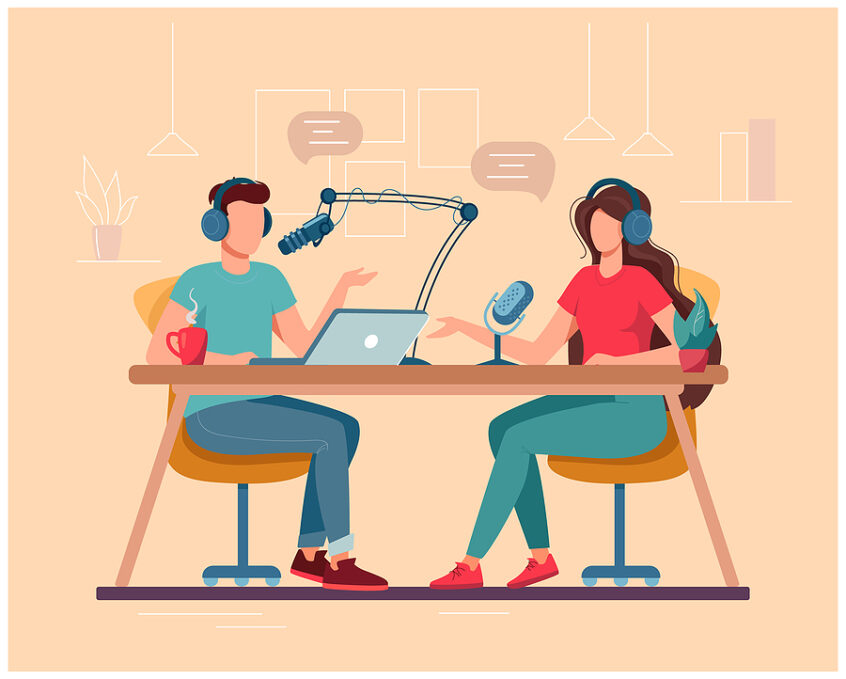“When we start seeing behaviors as symptoms, we fail to address the full picture of what is going on in a child’s life.” ~Dr. Sami Timimi
I am a Dr. Caroline Leaf fan. I have read two of her books and completely answered all of the hundreds of questions in her “The Perfect You” book. It is thanks to her that I explored a half dozen new ways that I could learn information to see what method really worked the best for me. Her work introduced me to the metacog. I think you get it. I have respect for her.
Yesterday I finally watched her two podcast videos of a conversation she had with Dr. Sami Timimi. I am not sure what to say after that. They had a more non-conventional perspective on ADHD and the more I listened the more I had reservations about what they were talking about. I also found it valuable to look at society’s general evolution with the term ADHD. They had some perspectives that are worth bringing into the conversation about ADHD and neuro divergences.
Remember this is just my perspective and what I found interesting from my lived experiences. I encourage you to explore for yourself.
Here were some of the key perspectives worth thinking more about:
- They don’t feel like there has been enough good research to stand behind all of the medication that is used for ADHD.
- A good discussion about the question of state or trait when it comes to ADHD. Is it a way of being or is it situational.
- Is this hereditary?
What I took away from the conversation:
- Because they both push back on the belief that ADHD is a mental health disease and more of a trait, a way of being, that needs to be understood, coached, nurtured, and explored they question all of the medications made for it and the labeling of it on young people. They talked about some of the ways that those in the medical community are not questioning.
“When we start seeing behaviors as symptoms, we fail to address the full picture of what is going on in a child’s life. From a medical perspective of diagnosis, the goal is reduced to controlling or getting rid of these symptoms with medication, which overlooks the child’s environment and what is happening in their lives.” ~Dr. Sami Timimi
- They noted some research that demonstrated the long-term success of young people given medication and those that only did therapy as a child. The research that supports their perspective shows that those given medication with no therapy as kids were less successful than those who were in therapy. I found that to be interesting research.
I personally don’t entirely disagree with their perspective, and I think it is a view that works well in supporting young people better than labeling them as broken, different, and wrong, which does happen. I have observed many of the ways that labeling without support doesn’t work.
Just like with dyslexia, there is some value in a label in that it is helping you identify your thought processes. It allows you to have insight into ways you can navigate the world you live in. Labels can help other people identify that you are part of their way of being on this planet or that you are not a person that is living life the same way they are.
I know that it is important to push back and look at conflicting perspectives to a situation to see a broader picture and make better decisions. I have gone through the Dr. Amen certification process and he is a huge believer in imaging and the answers that provide for ADHD. While these two doctors may not agree on a lot of things when it comes to this topic, they do agree on a couple of things; that people are incredibly resilient, that the brain is malleable, and that it is important to know your brain.
Keep up the great learning,
JoyGenea Schumer
Business Owner, International Neurodiversity Coach, and Speaker
RESOURCES:
Part 1: https://www.youtube.com/watch?v=hrsQylpCq8U
https://drleaf.com/blogs/news/addressing-add-adhd-with-child-psychiatrist-dr-sami-timimi
2:00 Sami’s amazing work
3:10 The failures of the current mental healthcare system
6:11, 24:00 Why we urgently need to redefine mental health culture
12:18 The reality behind mental health diagnoses
20:00 The circular thinking that defines current mental healthcare
26:10 How little we actually know about mental health
28:50 The commodification of human emotion
32:30 Pathologizing mental health from youth & its consequences
37:16, 50:55 The myths surrounding ADHD
Part 2 https://www.youtube.com/watch?v=qKREVLeAEXw
2:38 The manufacture of ADHD
7:50, 10:00 The genetic myths surrounding ADHD
9:47 Behavioral issues & the impossibility of disentangling nature and nurture
26:18 The failure of ADHD brain imaging studies
31:00 Where brain scans fall short: the debate between trait or state of mind
37:00, 51:30 The chemical imbalance myth & ADHD
57:00 There is hope!
